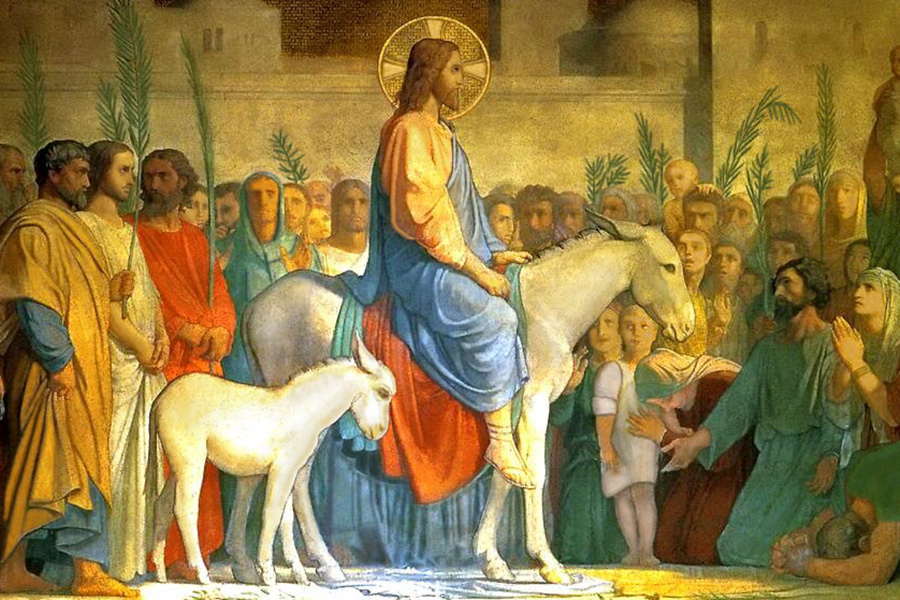Liturgy: In the Hands of God, Nothing Good is Wasted
We should pursue our vocations with courage and seek to bring joy to our communities—in small ways as well as great—because God vindicates every good.

The King’s Liturgy defines our experience together as a Christian community. It outlines the rhythms we celebrate with the Church at large: Scripture readings, Sabbath habits, and celebration of Holy Days and historical events.
This week’s Scripture readings:
Psalm 118:1-2, 19-29
Luke 19:28-40
This week’s reflection was contributed by Emily Schatz, Historian:
This is surprisingly hard for us to believe. “No good deed goes unpunished,” we say. The careful student is outshone by the lazy charmer; careful scholars and principled leaders are shouted down by mudslinging activists and sensation-driven media; the faithful spouse of decades gets walked out on; the garden gets paved for a strip mall. Even if we tell ourselves we’re committed to doing good, we are rarely content without getting some attention for it. Deep down, we struggle to believe that our sacrifices, joys, and internal achievements matter.
In this week’s reading, Jesus comes into Jerusalem in the role of its political savior, with crowds falling over themselves to celebrate him. Jesus doesn’t just initiate and encourage this display. When the Pharisees challenge him, he claims authority over the entire created order: “I tell you that if these should keep silent, the stones would immediately cry out.” The text doesn’t say how the twelve disciples felt, but if other passages are any guide, they may have thought all their dreams were gloriously coming true.
A few days later, that triumph would look like a stupid, crushing waste—it had set in motion the march to Jesus’ death. There could have been no wiggling out from under that hammer-blow into “Well, our time with him was wonderful while it lasted.” The hopes they had spent three years building their lives on were irreparably devastated, and they were lucky to escape with their skins.
When Jesus rose from the dead, we know there was restoration. But the disciples didn’t get their dreams back intact. Instead, their hopes, the years they had spent with Jesus, and everything he had shown and said to them were transformed by such a blaze of new understanding that the disciples themselves became almost unrecognizable. The bellicose, bickering, perpetually confused men of the early years became evangelistic giants. The triumphal entry became a sign in history of Jesus’ final accession to the kingship of all space, time, and matter; and that pageant of joy was even extended to us. We’ve received our own festal entrance into the kingdom of God, as the Psalm for this week describes—and we observe it every time we go to church and take communion.
But the final revelation is still far off from us. So what does this mean for our life in the world?
It means everything good is worth doing. (Even the flowers I’m drawing for my three-year-old between sentences right now.) Everything we’ve loved and had to lay aside for another goal, or will have to lay aside, is not lost on God. Every ounce of emotion we can spend on people or projects or politics or pets is caught up into the work of love by which the Holy Spirit is preparing the world for Christ’s return. None of our relationships are wasted. None of our tears are lost. None of our byways are ultimately dead-ends. And nothing can separate us from Jesus.
For starters, I think that means we do as much as we can, this week and beyond, to celebrate Easter like we mean it. Because that is not wasted either.
After that, we should pursue our vocations with courage and seek to bring joy to our communities—in small ways as well as great—because God vindicates every good.




